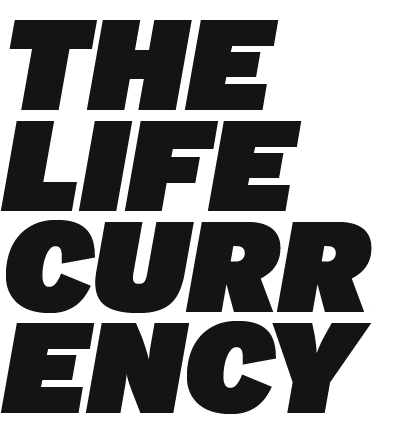F**k Student Loans: Is Quitting the Right Move?
Setting the Stage: The Student Loan Dilemma
The student loan dilemma is a complex web of choices, challenges, and emotions confronting countless graduates. It's a paradox where education, a means to personal growth and career advancement, often comes bundled with the shackles of debt. Once seen as an investment in one's future, these loans can quickly transform into a source of stress and uncertainty.
For those who have experienced the student loan dilemma firsthand, it's a narrative etched in anxiety and trepidation. The journey begins with the excitement of academic pursuits and dreams of a promising career. However, as graduation day approaches, the reality of loan repayments starts to cast its shadow.
As the first student loan bill arrives in the mailbox or lands in your inbox, a sinking feeling of obligation accompanies it. The weight of knowing that a significant portion of your income will be devoted to servicing these loans can be overwhelming. It's not just about the money; it's about the dreams deferred, the opportunities missed, and the constant reminder of financial fragility.
The decision to say, "F**k These Loans," and quit becomes a tempting escape hatch. It's a proclamation of frustration, a rebellion against a system that often feels stacked against the borrower. But before making such a monumental decision, it's essential to delve deeper into the intricacies of student loans, their impact on your life, and the potential consequences of quitting. This article is a guide towards a path forward, whether it involves perseverance or liberation.
Statistics: The State of Student Loan Debt
One must turn to the stark numbers that underscore the crisis to grasp the enormity of the student loan dilemma truly. These statistics paint a sobering picture of the current state of student loan debt in the United States and worldwide.
In the United States alone, the outstanding student loan debt has reached a mind-boggling 1.77 TRILLION DOLLARS. To put it into perspective, it exceeds the GDP of several countries. This colossal financial obligation is spread across millions of borrowers, each carrying their portion of the load.
The numbers continue to climb with each passing year, fueling concerns about the long-term economic implications. It's not just an individual burden but a national one, impacting the overall financial stability of the country.
Moreover, these statistics shed light on the demographic disparities in student loan debt. It's not a one-size-fits-all scenario. Different age groups, ethnicities, and socioeconomic backgrounds experience the weight of student loans differently, amplifying the complexity of the issue.
Behind the statistics are real people, real lives affected by the weight of student loans. The impact of student loans on borrowers is profound, touching nearly every aspect of their lives. The burden of student loans means putting off major life milestones. The dream of homeownership, once a cornerstone of the American Dream, becomes a distant goal as loan repayments take precedence. Starting a family, planning for retirement, or even pursuing further education can be delayed or modified due to financial strain.
Career choices, too, are influenced by the presence of student loans. Graduates may feel compelled to prioritize jobs with higher earning potential over positions that align with their true passions. This financial pressure can alter one's professional life trajectory, sometimes steering individuals away from fields where their talents and interests truly lie.
The student loan dilemma transcends financial numbers; it's a deeply personal experience that shapes life decisions, career paths, and emotional well-being. Understanding this multifaceted impact is crucial for anyone considering the path of quitting student loans. It's a decision that carries financial and emotional consequences, and each individual's journey is unique.
To Pay or Not To Pay
Before you take a stand and say F#ck it, there are a few potential lifelines that could help you with the student loan burden.
Explore Loan Forgiveness Programs
Federal Loan Forgiveness Programs offer a glimmer of hope for those overwhelmed by student debt. The SAVE Plan is an income-driven repayment (IDR) plan that calculates payments based on a borrower's income and family size – not their loan balance – and forgives remaining balances after a certain number of years.
Private Loan Forgiveness Opportunities
While federal programs are more well-known, private loan forgiveness opportunities also exist. These options may vary among private lenders, and their terms can differ significantly from federal initiatives. Exploring these possibilities can be particularly beneficial for those with private student loans. However, it's crucial to approach private loan forgiveness with caution.
These opportunities may come with stricter requirements, and the terms can be less favorable than federal programs. Thoroughly researching and understanding the terms and conditions is essential before pursuing this path.
Student Loan Refinancing and Consolidation
Refinancing can be a strategic move for those with high-interest rates or strong credit history. It's a way to optimize your loan terms and save money over the life of the loan. However, it's essential to understand the trade-offs, as refinancing may result in the loss of federal benefits like income-driven repayment plans and loan forgiveness.
Loan consolidation, on the other hand, involves combining multiple federal loans into a single Direct Consolidation Loan. This simplifies loan management, as you have only one monthly payment to make. While loan consolidation can simplify your repayment process, it's essential to consider the potential drawbacks. While it can lower your monthly payments, it may extend the repayment term, resulting in higher overall interest payments. Additionally, consolidation doesn't necessarily reduce your interest rate.
Aht Aht!
If you've made it this far and still want to say F#ck It, you'll want to continue reading to explore the potential consequences of your decision.
Assessing Your Financial Situation
Before you declare "F**k Student Loans" and embark on this path, closely examine your financial situation. Evaluate your income, expenses, and overall financial health. Consider whether you have other outstanding debts, such as credit card debt or a mortgage, that may require attention. Assessing your financial situation is the foundation of making an informed decision. It helps you understand your ability to meet other financial obligations and the potential impact on your overall financial stability.
Evaluating Your Career and Life Goals
Beyond the numbers, consider how quitting student loans aligns with your career and life goals. Think about the long-term implications for your professional aspirations and personal ambitions. Will quitting student loans enable you to pursue a career that you're genuinely passionate about, even if it initially pays less? Or will it hinder your ability to achieve your career and life goals? These are crucial questions to address.
Credit Score Implications
The decision to quit student loans can have implications for your credit score. Late or missed payments, defaulting on loans, or pursuing certain debt relief options can all negatively affect your creditworthiness. A lower credit score can impact your ability to secure future loans, obtain credit cards, or even jeopardize your housing options.
Legal Ramifications
Venturing into the 'F**k It' territory also comes with legal considerations. There can be legal ramifications for defaulting on federal or private student loans, including wage garnishment, asset seizure, or legal action taken against you.
While the 'F**k It' mentality may offer a sense of immediate relief, it's crucial to consider the long-term consequences before taking this path. It's a decision that should be made with full awareness of the potential financial, career, and legal implications.
Empowering You to Make an Informed Decision
Ultimately, we want to empower you to make an informed decision regarding your student loans. It's not merely about saying "F**k Student Loans" for the sake of rebellion, but about choosing a path that aligns with your unique circumstances and aspirations.
The decision to quit student loans is complex, requiring careful consideration of your financial situation, career goals, and personal well-being. It's a choice that can reshape your financial future, for better or worse, and should be made with a clear understanding of the potential consequences and alternatives.
By exploring the nuances of the student loan dilemma, understanding the emotional toll, and examining the benefits and drawbacks of repayment, you are better prepared to navigate this intricate terrain. Whether you choose to persevere in your loan repayment journey or embark on the path of liberation, your decision may lead to financial peace and fulfillment.




In today’s world of hustlin’ and bustlin’ entrepreneurs, managing money and maintaining integrity about how money is being delegated is a must.